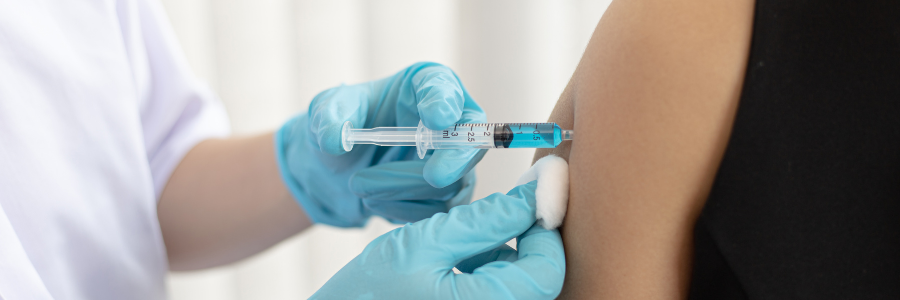Distribution of First Approved COVID-19 Vaccine in the U.S. Presents Challenges
Edith Pfister, Ph.D. - December 16, 2020
Edith Pfister, Ph.D., discusses several challenges following approval of the first COVID-19 vaccine in the U.S.

After almost a year of being in various degrees of shutdown and re-opening, it is not surprising that the approval of a COVID-19 vaccine has sparked excitement and relief. We’ve all done our best to adjust to an ever-changing situation, but the prospect of a vaccine makes it seem that the end is in sight. However, the challenges won’t end with the first doses of vaccine.
Already we have seen quite a lot of discussion about the logistical challenges of vaccine rollout in the U.S., but that is far from the only issue. Other concerns include a lack of transparency by the federal government, states lacking the money to distribute the vaccine, and the pressure to roll out distribution as quickly as possible. It is likely to be quite some time before things start to look more normal. I expect that many events will remain virtual for quite some time, that I won’t return to my normal travel schedule any time soon, and that I will continue wearing a mask at work. Already, vaccine delivery timelines are shifting. Managing expectations about the return to normalcy will present additional challenges, as will addressing public distrust and skepticism about the vaccine, about new technology, and about the speed of development.
Anuradha Gupta writes, “Besides vaccines, we need vaccinators and vaccinees; people to administer them and people willing to receive them. And that will be far from straightforward.” Our healthcare system is already overburdened. Healthcare workers are suffering burnout and hospitals are experiencing staffing shortages. Public health departments are also stretched to their limit. These are the vaccinators. The success or failure of the vaccine rollout relies on having enough people to deliver the vaccine, on massive amounts of coordination, and on public trust.
There is considerable evidence that COVID-19 has disproportionally affected members of racial and ethnic minorities. However, those same groups may be some of the most likely to be skeptical and hesitant about the new vaccine. In fact, while the percentage of Americans who would get the vaccination if it were available has increased to about 60% since September, only about 40% of Black Americans express an intention to do so. Public distrust is compounded by the fact that the first vaccine is a new type of vaccine, one with which many people are not familiar. This increases the likelihood that misinformation will spread and further erode public trust.
This is a global pandemic, requiring global solutions. While these first few vaccines are already being rolled out in richer countries, poorer countries will lag. These countries will likely rely on a second wave of vaccines and will face logistical challenges of their own which could take years to overcome.
Dr. Pfister is assistant professor at the University of Massachusetts Medical School and chair of the ASGCT Communications Committee.